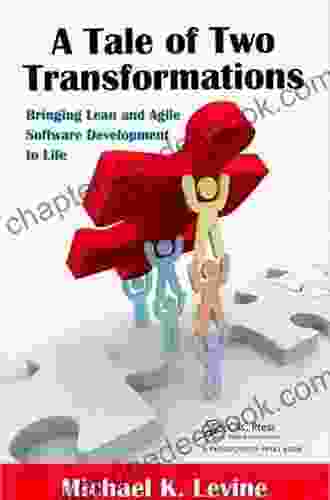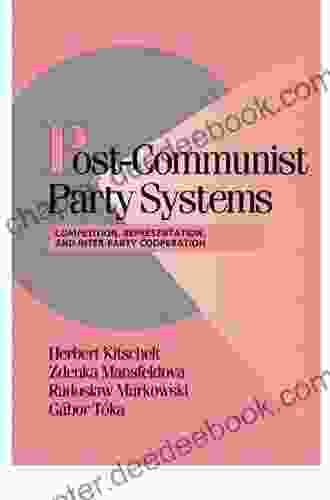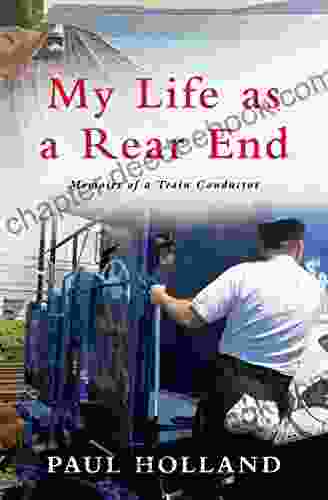Party Competition and State Exploitation in Post-Communist Democracies: A Comparative Analysis

The transition from communism to democracy in Central and Eastern Europe has been a complex and uneven process. One of the key challenges that these countries have faced is the problem of state exploitation. State exploitation refers to the use of state resources for private gain, and it can take many forms, including corruption, nepotism, and clientelism.
4.3 out of 5
| Language | : | English |
| File size | : | 4169 KB |
| Screen Reader | : | Supported |
| Print length | : | 296 pages |
Party competition is often seen as a key factor in mitigating state exploitation. In competitive party systems, parties are forced to compete for votes, and they are therefore more likely to be responsive to the needs of citizens. However, party competition can also exacerbate state exploitation, particularly in countries where parties are weak and fragmented.
This article explores the relationship between party competition and state exploitation in post-communist democracies. It argues that party competition can both mitigate and exacerbate state exploitation, depending on the institutional context. The article provides a comparative analysis of party competition and state exploitation in Poland, Hungary, and the Czech Republic, and finds that party competition has had a mixed effect on state exploitation in these countries.
Party Competition and State Exploitation: A Theoretical Framework
The relationship between party competition and state exploitation is complex and depends on a number of factors, including the institutional context, the strength of political parties, and the level of corruption.
In competitive party systems, parties are forced to compete for votes, and they are therefore more likely to be responsive to the needs of citizens. This can lead to a reduction in state exploitation, as parties are less likely to engage in corrupt or nepotistic practices that could alienate voters.
However, party competition can also exacerbate state exploitation, particularly in countries where parties are weak and fragmented. In these cases, parties may be more likely to engage in corrupt or nepotistic practices in order to secure votes. Additionally, weak and fragmented parties may be less able to resist pressure from powerful interest groups, which can lead to increased state exploitation.
The institutional context also plays a role in the relationship between party competition and state exploitation. In countries with strong institutions, such as independent judiciaries and free media, party competition is more likely to lead to a reduction in state exploitation. This is because strong institutions can help to hold parties accountable and reduce the opportunities for corruption.
However, in countries with weak institutions, party competition is more likely to lead to an increase in state exploitation. This is because weak institutions are less able to hold parties accountable and reduce the opportunities for corruption.
Party Competition and State Exploitation in Poland, Hungary, and the Czech Republic
Poland, Hungary, and the Czech Republic are three post-communist democracies that have experienced different levels of party competition and state exploitation.
Poland has a relatively competitive party system, with a number of strong and well-organized parties. This has led to a relatively low level of state exploitation in Poland.
Hungary has a less competitive party system, with a dominant ruling party that has been in power for over a decade. This has led to a higher level of state exploitation in Hungary.
The Czech Republic has a relatively competitive party system, but it is also characterized by a high level of party fragmentation. This has led to a mixed level of state exploitation in the Czech Republic.
The table below summarizes the levels of party competition and state exploitation in Poland, Hungary, and the Czech Republic.
| Country | Party Competition | State Exploitation | |---|---|---| | Poland | High | Low | | Hungary | Low | High | | Czech Republic | Medium | Medium |
The relationship between party competition and state exploitation in post-communist democracies is complex and depends on a number of factors, including the institutional context, the strength of political parties, and the level of corruption.
In competitive party systems, parties are forced to compete for votes, and they are therefore more likely to be responsive to the needs of citizens. This can lead to a reduction in state exploitation, as parties are less likely to engage in corrupt or nepotistic practices that could alienate voters.
However, party competition can also exacerbate state exploitation, particularly in countries where parties are weak and fragmented. In these cases, parties may be more likely to engage in corrupt or nepotistic practices in order to secure votes. Additionally, weak and fragmented parties may be less able to resist pressure from powerful interest groups, which can lead to increased state exploitation.
The institutional context also plays a role in the relationship between party competition and state exploitation. In countries with strong institutions, such as independent judiciaries and free media, party competition is more likely to lead to a reduction in state exploitation. This is because strong institutions can help to hold parties accountable and reduce the opportunities for corruption.
However, in countries with weak institutions, party competition is more likely to lead to an increase in state exploitation. This is because weak institutions are less able to hold parties accountable and reduce the opportunities for corruption.
The experience of Poland, Hungary, and the Czech Republic suggests that party competition can have a mixed effect on state exploitation in post-communist democracies. In Poland, a relatively competitive party system has led to a low level of state exploitation. In Hungary, a less competitive party system has led to a higher level of state exploitation. In the Czech Republic, a relatively competitive party system, but one characterized by a high level of party fragmentation, has led to a mixed level of state exploitation.
These findings suggest that the relationship between party competition and state exploitation is complex and depends on a number of factors, including the institutional context, the strength of political parties, and the level of corruption.
4.3 out of 5
| Language | : | English |
| File size | : | 4169 KB |
| Screen Reader | : | Supported |
| Print length | : | 296 pages |
Do you want to contribute by writing guest posts on this blog?
Please contact us and send us a resume of previous articles that you have written.
 Book
Book Novel
Novel Page
Page Text
Text Reader
Reader Library
Library Paperback
Paperback Magazine
Magazine Newspaper
Newspaper Sentence
Sentence Bookmark
Bookmark Glossary
Glossary Bibliography
Bibliography Foreword
Foreword Footnote
Footnote Codex
Codex Tome
Tome Bestseller
Bestseller Library card
Library card Narrative
Narrative Memoir
Memoir Resolution
Resolution Librarian
Librarian Borrowing
Borrowing Stacks
Stacks Archives
Archives Periodicals
Periodicals Reserve
Reserve Journals
Journals Reading Room
Reading Room Rare Books
Rare Books Special Collections
Special Collections Interlibrary
Interlibrary Study Group
Study Group Thesis
Thesis Dissertation
Dissertation Awards
Awards Reading List
Reading List Book Club
Book Club Textbooks
Textbooks D Marie
D Marie Gabriel Williams
Gabriel Williams Gary Smith
Gary Smith Olga Starostina
Olga Starostina Daniel A Sjursen
Daniel A Sjursen Phil Wall
Phil Wall David Joyner
David Joyner M Robinson
M Robinson Reinhard Bendix
Reinhard Bendix Robert F Berkhofer
Robert F Berkhofer Jane Heaton
Jane Heaton Dan Jenkins
Dan Jenkins Jing Cheng
Jing Cheng Yves Engler
Yves Engler Markie Madden
Markie Madden Thomas Winterbottom
Thomas Winterbottom Shifio Patterns
Shifio Patterns William Marvel
William Marvel Dana Levin
Dana Levin Lisa Wright
Lisa Wright
Light bulbAdvertise smarter! Our strategic ad space ensures maximum exposure. Reserve your spot today!

 Charles DickensA Tale of Two Transformations: Decentralized Finance and Non-Fungible Tokens
Charles DickensA Tale of Two Transformations: Decentralized Finance and Non-Fungible Tokens Cruz SimmonsFollow ·6.7k
Cruz SimmonsFollow ·6.7k Calvin FisherFollow ·2.8k
Calvin FisherFollow ·2.8k Yasunari KawabataFollow ·12.8k
Yasunari KawabataFollow ·12.8k Tom ClancyFollow ·6.3k
Tom ClancyFollow ·6.3k Diego BlairFollow ·15.5k
Diego BlairFollow ·15.5k Everett BellFollow ·18.9k
Everett BellFollow ·18.9k Dylan MitchellFollow ·19.4k
Dylan MitchellFollow ·19.4k David Foster WallaceFollow ·3.6k
David Foster WallaceFollow ·3.6k

 F. Scott Fitzgerald
F. Scott FitzgeraldRobot Buddies: Search For Snowbot
In the realm of...

 Mario Vargas Llosa
Mario Vargas LlosaUnlocking Academic Success: A Comprehensive Guide to...
In the ever-challenging academic...

 Gabriel Blair
Gabriel BlairMake $000 Per Month Selling Your YouTube Freelancing...
Are you looking for a...
4.3 out of 5
| Language | : | English |
| File size | : | 4169 KB |
| Screen Reader | : | Supported |
| Print length | : | 296 pages |















